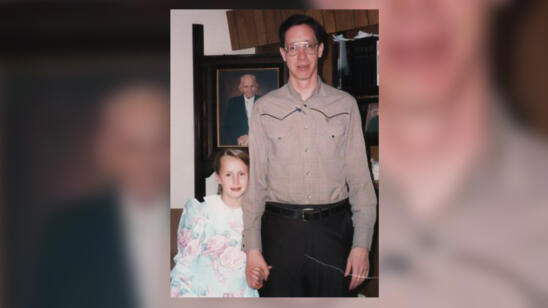In 2011, Warren Jeffs, the leader of the Fundamentalist Church of Jesus Christ of Latter-Day Saints (FLDS), was sentenced to life plus 20 years for sexually assaulting a 12-year-old girl and a 15-year-old girl—both of whom he had forcibly made his “spiritual wives.” What he was not charged with was polygamy (being married to more than one person at once)—though, at the time, it was a felony in Utah. In fact, every state in America “has laws against getting married while already being married to someone else,” according to the Pew Research Center.
In 1879, the U.S. stance on polygamy—that it was illegal—was upheld by the Supreme Court in the case of Reynolds v. United States.
George Reynolds, a Mormon living in Utah, had been fined $500 and sentenced to two years of hard labor for violating an anti-bigamy law. (“Bigamy” is the act of marrying someone while still legally married to another person, and it is usually the term used in laws against plural marriage. Polygamy is illegal because bigamy is. The words “bigamy” and “polygamy”—and their derivatives—are sometimes used interchangeably.)
Reynolds, with the support of fellow Mormon polygamists, fought the charge, insisting plural marriage was protected under the First Amendment. He lost.
Recent Court Cases Involving Polygamy
More recently, polygamists have argued that the precedent cases Roe v. Wade (decided in 1973 and overturned in June 2022) and Lawrence v. Texas protect plural marriage under their rulings, which emphasize a right to privacy.
The Brown family of Utah did win a federal case challenging Utah’s anti-polygamy law in 2013. This came after several states passed laws legalizing gay marriage, saying anti-bigamy laws violated polygamists’ rights to privacy and freedom of religion. But the 10th U.S. Circuit Court of Appeals dismissed the case in 2016. They stated that Kody Brown and his four wives, Meri, Janelle, Christine and Robyn Brown, were not in danger of being prosecuted since Utah had adopted a policy of only convicting polygamists for other crimes. (In 2012, Utah County Attorney Jeff Buhman said he would only prosecute polygamous adults if there were allegations of violence, abuse or fraud.) Thus far, polygamy is not federally protected.
Polygamy is illegal in most of the world, but it is practiced by about 2 percent of its population. Globally, some Muslim sects practice polygamy (including in the U.S., illegally), and there are exceptions to federal polygamy laws for these religious plural marriages in countries such as India and Nigeria, where polygamy is otherwise banned. In some countries, rules about polygamy are under the purview of religious law and leadership, but marriage is chiefly governed by the states.
Not that religious leadership hasn’t weighed in.
In 1890, The Church of Jesus Christ of Latter-Day Saints (LDS), or the Mormon Church, renounced polygamy. This led to the formation of the FLDS, or the Fundamentalist Church of Jesus Christ of Latter-Day Saints, which continues to practice it.
What Do Americans Think About Polygamy?
Today, mainstream Latter-day Saints practitioners appear to have a stronger aversion to polygamy than other Americans. Frank Newport reported for Gallup in 2020 that Americans who identify their religion as Mormon polled by the global analytics firm since 2003, were “slightly less likely than the sample average to say polygamy is morally acceptable.”
From a social standpoint, polygamy in America has always been deeply unpopular. But opinions do seem to be changing.
According to the 2022 Gallup Values and Beliefs poll, a record percentage of Americans—23 percent—believe that polygamy is “morally acceptable.” Though far from unanimous, this stat is up from 20 percent in 2020, 16 percent in 2015 and 5 percent in 2006—the lowest percentage since the query’s introduction in 2003. (Interestingly, only 9 percent of those polled in 2022 found cheating on one’s spouse morally acceptable. This seemingly indicates that many of the Americans who accept polygamy view it like a traditional, monogamist marriage when it comes to “faithfulness.”)
Casey E. Faucon, an assistant professor at the University of Alabama School of Law, has written about polygamy for the Utah Law Review, The Harvard Law & Policy Review and the Duke Journal of Gender Law & Policy. She believes Americans are becoming more accepting of polygamy because they’re more accepting of alternative lifestyles in general.
“Polyamory as sort of a subsection of polygamy plays itself into a progressive political space,” she tells A&E’s True Crime. “So, in that regard, people are more open to it. There is more exposure to it now.” Faucon cites more widespread awareness of plural families in TV and pop culture.
[Stream Warren Jeffs: Prophet of Evil in the A&E App.]
This softening of social opposition comes alongside a softening of polygamy law in Utah, the state believed to have the highest number of polygamists.
When Is Polygamy Prosecuted?
In 2020, Utah passed Senate Bill 102, reducing the crime of polygamy from a felony to an infraction in most cases. (The punishment for an infraction is up to a $750 fine and never includes jail time.) But polygamy is still a felony in Utah if it’s paired with force, threats or another crime, such as fraud. (These are all crimes that have been leveled against the FLDS in the past. In 2017, Lyle Jeffs, who took over official leadership of the FLDS when his brother Warren Jeffs was convicted, pleaded guilty to food stamp fraud.)
Senate Bill 102 was opposed by the anti-polygamy activist group Sound Choices Coalition, which includes women who ran away from polygamist marriages. In a statement they released shortly after the bill was passed, they wrote: “Most who are living in these fundamentalist polygamous groups and families are treated as property, forced to work without pay, traded as daughters, coerced into having unwanted sex and into giving birth to numerous children they cannot care for.”
State Senator Deidre M. Henderson, the primary sponsor of the bill, emphasized that the state did not legalize bigamy. “We simply removed the fear of otherwise law-abiding polygamists of being jailed or having their children taken away from them,” she told The New York Times in a 2020 interview. She also stated that most polygamists prosecuted in recent years were charged for other crimes, not bigamy, already.
Henderson and others believe the law could help FLDS members who are being abused or have witnessed crimes within the community because it will alleviate their fear of being arrested for polygamy. This same fear was also reported in a 2001 New York Timesstory after Tom Green, an FLDS member, Utah resident and “husband of five and father of 29,” was convicted of four counts of bigamy. (Green was later convicted of child rape in 2002.)
Forced polygamy and child marriage are very serious crimes, says Faucon, but she argues that polygamy between consenting adults should not be considered one.
Faucon says, “It’s a privacy issue—what people choose to do inside of their own homes is already protected under the Constitution, right? And then what people say out in public about who they are, that’s a free speech issue, as is being able to have a commitment ceremony.”
Legally, this has yet to be determined.
Related Features:
Warren Jeffs Today: How the Polygamist Leads His Fundamentalist Mormon Sect from Prison
Why Brenda Lafferty Was Murdered by Her Husband’s Fundamentalist Family
Rachel Jeffs on Escaping the FLDS Cult and Her Father Warren Jeffs


